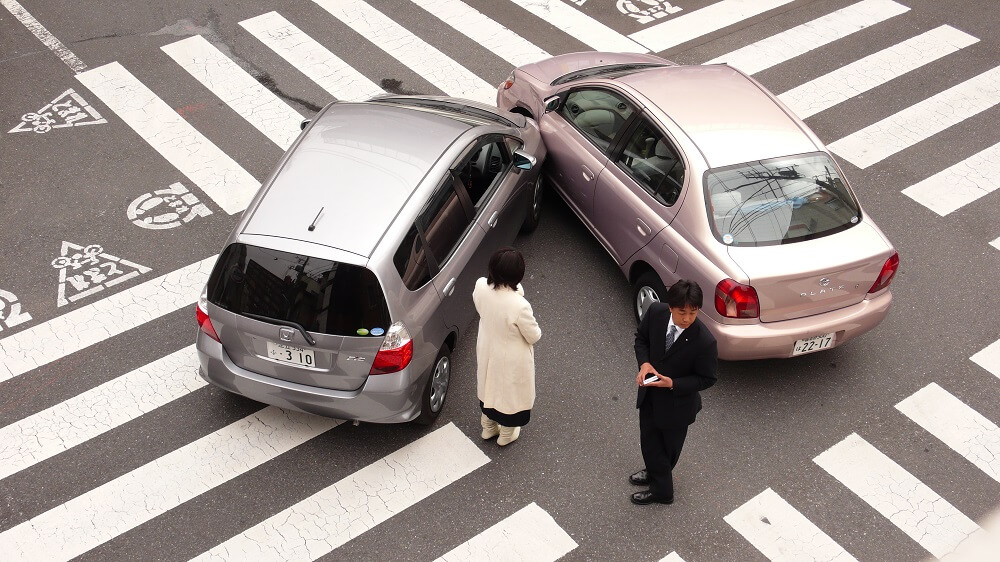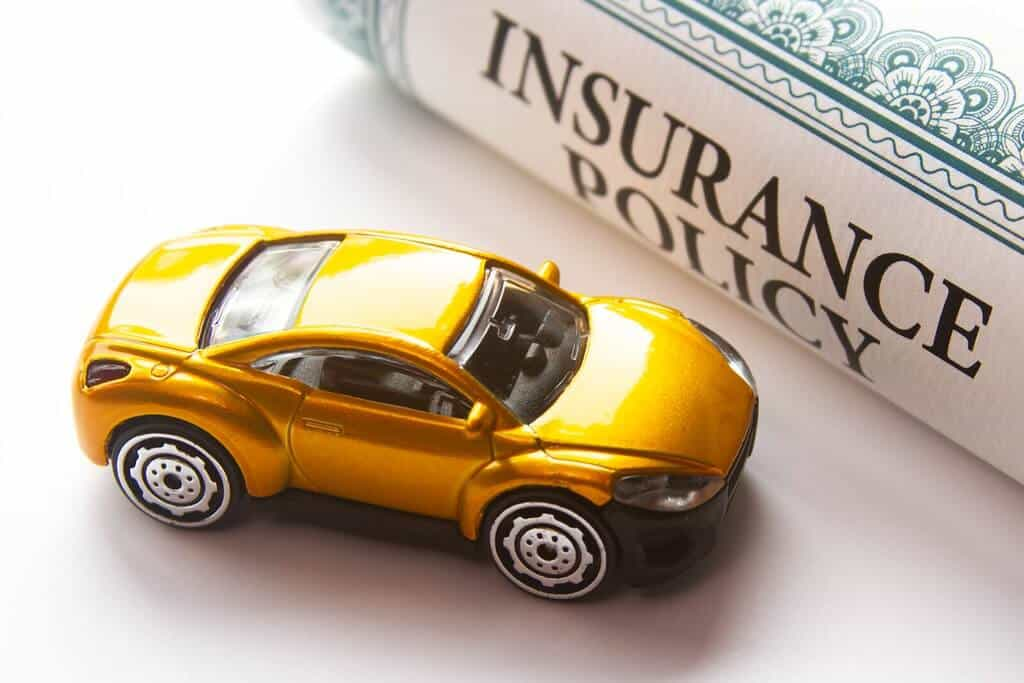How does Car insurance work?
When you buy insurance, your insurer or agent will ask some pretty basic questions about you and your car, and then you’ll have some options when picking coverages, which impact your price. Generally, more coverage means a higher price. Then if you have damages or something happens, you can file a “claim” with your insurer–that’s just an insurance term for asking the company to pay for something. If it’s covered, your insurer will then pay for the damages or losses up to certain limits.

Do I need car insurance?
Whether you like it or not, car insurance is a necessary cost. Depending on the level of coverage, it can help with claims for damage to other people, their property, you, and your car. Car insurance is designed to protect you from the financial costs of an accident and protect the medical and financial interests of anyone in an accident. Imagine being involved in an accident that isn’t your fault and only your medical bills and maintenance costs remain. Car insurance offers peace of mind to drivers and road users because they know that if the worst happens, their financial expenses will be protected.
Standard coverages
Offered in most states, these coverages may vary. Keep in mind, insurance doesn’t cover maintenance or general wear and tear.
Damages/injuries you cause
Liability insurance: In most states, this is the only required coverage. If you’re in an accident and are responsible (also called at fault), liability pays for:
- Damage to other cars
- Damage to objects (mailbox, phone pole, house, etc.)
- Other drivers’ and their passengers’ injuries
- Lawsuits if someone sues you because of an accident

Damages to your car
Comprehensive: Covers those random events that are beyond your control:
- Theft
- Windshield and glass damage
- Vandalism, riots, explosions, and fire
- Falling trees/branches and other objects
- Rocks or other objects kicked up by cars
- Storms, floods, wind, hail, earthquakes, and lightning
- Accidents with animals (hitting a deer)
Damages to your car from accidents
Collision: Covers accidents with other cars and objects no matter who’s at fault. Collision also covers you if you overturn your car.
Damage to your car from uninsured drivers
Uninsured Motorist Property Damage Insurance (UMPD): it covers damage to your vehicle caused by uninsured drivers. If the hit-and-run driver damages your vehicle, uninsured motorist property damage insurance can also protect your vehicle. Insured property may include personal property as well as your vehicle, depending on the state.
Your injuries
Medical payments or personal injury protection (PIP): These are similar coverages. Medical payments coverage is offered in most states, while PIP is available only in the states that require it to be offered. Basically any time a car causes injuries, these coverages will both pay for medical bills, if a) you or your passengers are injured in a car accident (no matter who is at fault) or if b) you or your family members are injured when riding in someone else’s car or walking/riding a bike. PIP, which varies by state, is a bit broader and may cover other losses such as funeral expenses, lost wages, and rehab costs.
Your injuries from uninsured drivers
Uninsured/underinsured motorist bodily injury
Similar to its cousin coverage (uninsured/underinsured motorist property damage) but instead pays for injuries and lost wages.
Your out-of-pocket costs
Deductible: It’s a common misconception that if you have car insurance, you don’t ever have to pay for anything. Unfortunately, no insurer can promise that. All insurers have deductibles for a few coverages. Your deductible is simply the amount you have to pay for repairs or claims (your out-of-pocket costs). To give a practical example, like hitting a telephone pole with your car. If your deductible is $200, and repairs to your car cost $2,000, you would be stuck paying $200 and your insurer would pay the rest. You can pick your deductible amount. The higher your deductible, the more of the repair or claim cost you’ll have to take on. That means your out-of-pocket costs will be higher, but you’ll have a lower overall rate and vice versa.
Extra coverages
These are the extra coverages that are affordable to add:
Rental car fees
Rental car reimbursement: Pay your car rental fees while your car is being repaired. This is important because getting a rental car can be expensive, as an average repair can take many days and the daily cost can be high.
Your loan if you total your car
Gap coverage: Also called loan/lease payoff and helps pay off your car loan if you total your car. It pays off the “gap” between what your car is worth and how much is left on your loan.
Lockouts, towing, jump starts, etc.
Roadside assistance: So you’re never stranded on the side of the road. Insurance companies may cover you for: towing to the nearest repair facility; pulling your stuck car out of mud, snow, water, or sand; battery jump-start; fuel delivery (you only pay the cost of fuel); lockouts; flat tire changes.
How is priced?
Insurance companies take a number of factors into consideration, but they always start with a couple of questions when they have to price coverages: How likely are you to be in an accident? How much will it cost?
Here are a few of the specifics considered:
- Safe driver: No (or few) accidents means you’re less likely to have one in the future.
- No speeding tickets: The slower you go, the less likely you are to have an accident.
- Your car’s value: A cheaper car costs less to repair.
- Age: More experience behind the wheel means you’re less likely to have an accident. Your rate will usually go down as you get older, though some insurers may begin to increase rates for older drivers once they reach a certain age, such as 70.
You may also like
Why Big Tech Companies Are Turning to Geothermal Energy for Powering Data Centers
This article explores the increasing reliance of major tech companies on geothermal energy to power their data centers. Delving into the growing energy demands, the sustainability aspects of geothermal power, and the innovative steps being taken by industry giants, it highlights how geothermal energy is emerging as a viable solution to the pressing challenges of energy consumption and environmental sustainability in the digital age.
Home insurance, what it covers and why it’s worthwhile
When it comes to home insurance, the reaction is almost always the same: there is a tendency to make doubt and skepticism the mainspring of every choice and rather than investing in a guarantee, you give up a priori to make an expenditure, often considered unjustified. One should, instead, abandon all cultural conditioning and persuade… Continua a leggere Home insurance, what it covers and why it’s worthwhile
Pet Insurance: why it is the best choice
Pet policies are gaining momentum in the insurance industry. Thinking about a coverage both for our friends and for those who have or will have to do with them means getting a total protection against any inconvenience that may occur. Let’s think, for example, of the possible damage that one of our pets could cause… Continua a leggere Pet Insurance: why it is the best choice
Why it is important to make a life insurance
Life insurance can be very beneficial: here’s what it is and what types exist. The subject is morally challenging, as feelings such as conscience, love and affection for family members are the driving forces behind this investment. In fact, life insurance is a gift that is given to those who love themselves and their loved… Continua a leggere Why it is important to make a life insurance
